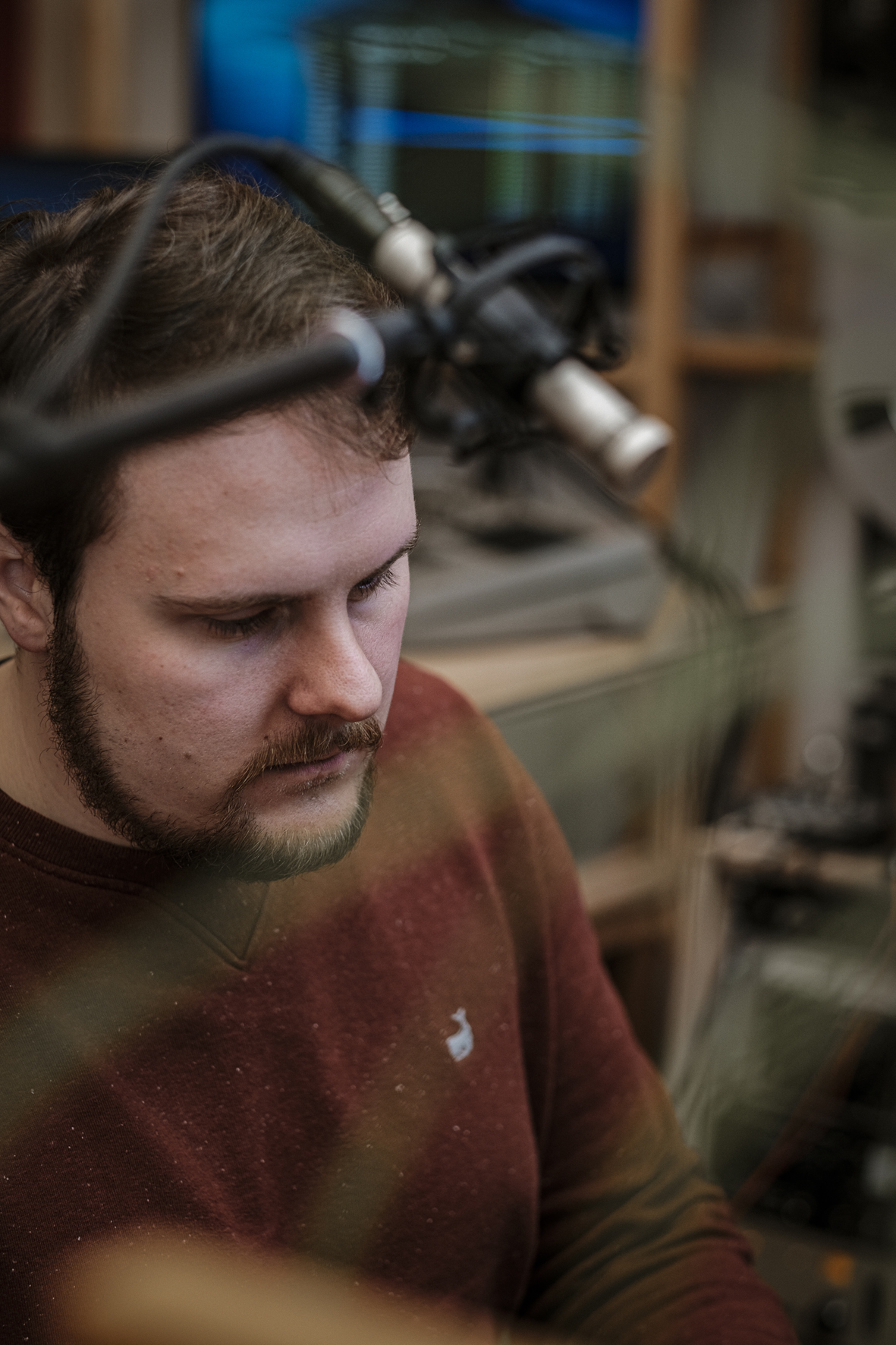About
Raffael Seyfried's work takes place on the border between acoustic and electronic material. He explores the dynamic processes and characteristics that are present in both media. By subtly mixing these elements, he creates warm and unusual soundscapes, free from the constraints of a particular genre. His live performances focus on the interaction between piano and modular synthesizer, sounds that change and influence each other. The result of this multifaceted process is a multi-faceted sound world, sometimes planned, sometimes spontaneous and improvised.
As composer and orchestrator he found work on international film and television productions like "Gunpowder" (BBC/HBO 2017), "Patrick Melrose" (Showtime 2018), "Hotel Mumbai" (2018) or "Phenoms". (FOX Sports 2018). He also composes music for various projects such as the radio feature "Marslandung in Rio Tinto" (DLF 2018), the dance piece "Unbearable Darkness" (Tanzhaus Düsseldorf 2018) or the sound performance "Murmur et Hum" (2018).
After the release of two EPs, several singles and participation in the English label DiN's Tone Science compilation, Raffael Seyfried’s first complete album is now being released. He continues to develop the sound that he established in his first releases. The nine tracks consist of an organic mix of piano, synthesizer and, for the first time, string arrangements. A nine-piece string ensemble was recorded for the album in the Immanuelskirche in Wuppertal.
The album “Lines Of Flight” will be released in June 2022.
